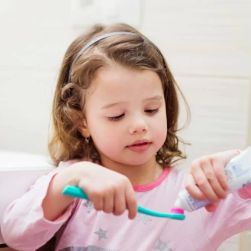Protecting Smiles: A Caregiver's Guide to Elderly Oral Hygiene
- 1. Why Oral Hygiene Matters for Seniors
- 2. Challenges in Maintaining Elderly Oral Hygiene
- 3. Essential Steps for Effective Oral Care
- 4. Practical Tips for Caregivers
- 5. The Importance of Regular Dental Visits
- 6. Empowering Your Loved One for Oral Health
Maintaining good oral hygiene is crucial at every stage of life, but it becomes especially important for seniors. The question "How to ensure that your elderly loved one maintains proper oral hygiene?" is not just about aesthetics; it's about overall health and wellbeing. For older adults, oral health issues can lead to discomfort, difficulty eating, and even more serious systemic health problems. This guide provides essential information and practical tips to help caregivers ensure their elderly loved ones receive the dental care they need.
1. Why Oral Hygiene Matters for Seniors
Oral health is intrinsically linked to overall health. For seniors, neglecting oral hygiene can lead to a range of problems, including gum disease (periodontitis), tooth decay, and infections. These issues can make eating painful, affect nutrition, and even increase the risk of systemic illnesses, such as heart disease and pneumonia. Proper oral hygiene is therefore paramount for maintaining a senior’s quality of life. Understanding the significant impact of oral health can motivate caregivers to be proactive in implementing effective care routines.
2. Challenges in Maintaining Elderly Oral Hygiene
While the importance of oral hygiene is clear, elderly individuals often face unique challenges that make it difficult to maintain proper care. Recognizing these barriers is the first step in finding effective solutions.
2.1 Physical Limitations
Arthritis, tremors, and other physical limitations can make it difficult for seniors to manipulate a toothbrush or floss effectively. The reduced dexterity in hands can prevent the ability to perform even simple tasks like brushing, which can lead to neglect and increased risk of dental problems.
2.2 Cognitive Impairment
Conditions like dementia or Alzheimer's can affect memory and the ability to understand the importance of oral hygiene. Seniors with cognitive impairment might forget to brush, or not understand how to properly care for their teeth and gums. This challenge requires a greater level of assistance and a consistent routine.
2.3 Medications and Dry Mouth
Many medications commonly prescribed for seniors have the side effect of causing dry mouth (xerostomia). Saliva is essential for maintaining oral health as it helps wash away food particles and neutralize acids. A lack of saliva can lead to increased tooth decay and gum problems. Recognizing and addressing dry mouth is crucial for the elderly oral hygiene care.
3. Essential Steps for Effective Oral Care
Maintaining proper oral hygiene involves a few key steps, which should be performed consistently:
- Brushing: Brush teeth at least twice a day with a soft-bristled toothbrush and fluoride toothpaste. Be thorough, making sure to reach all surfaces of the teeth and gums.
- Flossing: Floss daily to remove food particles and plaque from between teeth.
- Mouthwash: Use an antimicrobial mouthwash to help control plaque and bacteria.
- Denture Care: If wearing dentures, clean them daily with a denture brush and cleaning solution, and ensure they are removed before sleep.
- Tongue Scraping: Gently scrape the tongue to remove bacteria and food debris.
4. Practical Tips for Caregivers
Caregivers play a critical role in ensuring the oral health of elderly loved ones. Here are some actionable strategies to improve their oral hygiene.
4.1 Assisting with Brushing
If your loved one struggles with brushing due to physical limitations, offer assistance. Use adaptive tools like electric toothbrushes, modified handles, or long-handled brushes. Make sure to guide their hands to properly clean all tooth surfaces and gums. Be gentle and patient. The goal is to assist and not take over completely.
4.2 Denture Care
Caregivers need to ensure dentures are cleaned properly to prevent bacteria growth. Encourage removing dentures every night and soaking them in a denture-cleaning solution. Gently brush dentures each morning with a soft brush and denture cleaner. Regular professional check-ups with the dentist are also important to maintain a proper fit.
4.3 Addressing Dry Mouth
Encourage your loved one to drink water frequently and use sugar-free gum or lozenges to stimulate saliva production. A humidifier, especially at night, may help. In cases of persistent dry mouth, a dentist or doctor can recommend artificial saliva products or other treatments.
5. The Importance of Regular Dental Visits
Regular dental check-ups are crucial for detecting and addressing oral health issues early. Schedule routine visits with a dentist who is experienced in geriatric dental care. Professional cleanings, examinations, and personalized advice are all part of proactive dental care. Regular check-ups can prevent minor issues from escalating into serious dental problems. Discuss all concerns and ask questions when consulting with the dentist.
6. Empowering Your Loved One for Oral Health
Maintaining proper oral hygiene for elderly individuals requires patience, consistency, and empathy. By understanding the challenges involved and implementing these tips, caregivers can help their loved ones maintain healthy smiles and improve their quality of life. For further information and professional guidance on elderly oral hygiene, visit Dentistry Toothtruth. We offer a wide range of resources and insights to empower both caregivers and their loved ones to achieve better oral health. Take the first step to protect the health and well-being of your loved one by clicking on our link.



